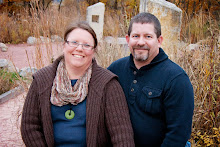
One of our family values is that we eat dinner and lunch together. When we eat with the exception of Friday evenings we all sit down at the same table. We do not typically watch television or answer the phone. These times are precious and sacred to us. One of the great tragedies of our time is the loss of family meals. The shared experience of waiting to consume that which has been prepared, eating the same food as the rest of the family at the same place and the same time. Communal value is placed on the family as a whole unit instead of the individual. I have often felt that the loss of the family meal has also meant the loss of manners of in our society. Fr. Patrick Henry articulated this better than I could so I have copied and linked his article below. Enjoy!
Virtue Begins With a Spoon
Perhaps I am mistaken, but I suspect one of the problems involved in the pursuit of Wisdom is that some folks fancy they are further along than they really are. I am thinking of those who read the Upanishads and Plato when they have yet to master Mother Goose.Normally the simpler things come first: Grammar before logic. We crawl first, then walk. We take the pen in hand after we are competent with the pencil, and maybe the pencil should wait until we are sufficiently skilled with the crayon.
And we don’t begin alone. The aforementioned implements of learning, in fact — all of them normally employed in private — depend on our competence with the one human implement we learned to use in a social setting. I mean that most basic utensil: the spoon.
Let me state my thesis outright: The quest of Wisdom commences with learning how to eat. The most basic steps towards virtue are mastered at the family table. Character begins with etiquette. Teach a child how to dine like a human being, and you have gone wonderfully far in his education.
If I had not known this fact before, I would have learned it from Sirach (especially 31:12-32:13). This aspect of Sirach's theory flows from his conviction that the quest of Wisdom is a social enterprise. This is a proposition on which he insists repeatedly: The wise man is one who knows how to live wisely in society and spends his life in pursuit of its greater good. And where does a wise man acquire the rudiments of this calling? When he first learns to eat with his family.
It is at home (domus) that human beings are — literally — "domesticated." It is during meals that they increase, not only "in stature," but also "in wisdom" (Luke 2:52). Here they acquire those patterns of affability, restraint, courtesy, and cultivated joy that prepare them for a wise life in a larger world.
In acquiring table discipline — which pertains to language and posture as well as eating — young human beings are instructed in the simple pleasures of what is called "conviviality." This literally means "living in common."
Indeed, it is arguable that the lessons learned at the family table are more fundamental to the pursuit of Wisdom than those learned in the classroom. It is at meals that souls are nourished, as well as bodies. It is largely from eating with the family that helpful information is conveyed and the foundational lines of character are formed.
In this setting, one gradually learns the art of the "inner check," as Irving Babbitt calls it. Restraint is in order. There are things that may not be done at table — and certain subjects never spoken of — and certain other things must be said or done at table.
Without this inner check of discipline, there is no chance of conviviality. The eater "conforms" to a standard, adopting as his own a "form" common to those who share the blessings of the meal.
First, a person learns to pray at table, to thank God for His blessings, some of which the family shares at mealtime. He thus acquires the habit of gratitude, which is essential to a soul pleasing to God. A man that does not pray at meals is no better than a dog.
Second, because he has just thanked God for his food, one cannot logically complain of it. This would contradict his prayer of thanksgiving. On the contrary, he eats gratefully what is put in front of him, and a child is correctly given no choice in this matter. He thus learns to receive what life offers and does not entertain the fancy that experience must conform to his preferences. This simple lesson is indispensable to the formation of character.
Third, a person learns elementary self-control. He is discouraged from gorging himself like a mule. He thus acquires the habit of restricting his passions and appetites, a lesson fundamental to the moral formation of character.
Fourth, at the family table one becomes versed in the formalities of speech common in a polite society. Under the gentle discipline of his elders, he acquires the ability to communicate with others kindly, a trait also vital to the contouring of character.
Mastered at the family table, these simple disciplines are essential to the social growth of the human being. He will learn to think of himself as — and feel himself to be — an integral member of the larger social reality, gradually gaining an awareness of his place and duties in that society. Becoming what Henri Bergson calls un moi social, he will learn that strong and pleasant conviviality essential to a wise life.
Fr. Patrick Henry Reardon is pastor of All Saints Antiochian Orthodox Church in Chicago, Illinois, and a Senior Editor of Touchstone: A Journal of Mere Christianity.
http://www.orthodoxytoday.org/articles-2009/Reardon-Virtue-Begins-With-A-Spoon.php

